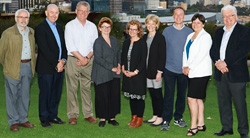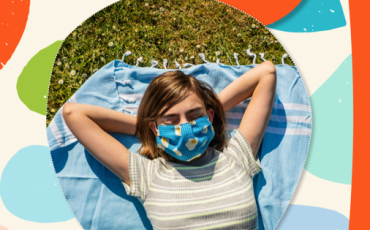Children’s Commissioners and Guardians Communique 11 November 2014
Archived
You are in an archived section of the website. This information may not be current.
This page was first created in November, 2014

Australian Children’s Commissioners and Guardians Communique 11 November 2014

The purpose of the ACCG is to strengthen the quality and effectiveness of strategic advocacy to promote and protect the safety, wellbeing and rights of children in Australia, particularly the most vulnerable or disadvantaged.
The Australian Children’s Commissioners and Guardians (ACCG) met in Perth on 10 and 11 November, 2014.
ABORIGINAL AND TORRES STRAIT ISLANDER CHILDREN AND YOUNG PEOPLE
ACCG members discussed the importance of, and strategies for, effective consultation with Aboriginal and Torres Strait Islander children and young people. Members shared their experiences and learnings from recent projects.
At an event in Kings Park ACCG members met children and young people from the Locko Dreamers, an inspirational group of young people aged from seven to 17 years who participate in the Follow the Dream program at Lockridge Senior High School.
PASSPORTS FOR CHILDREN IN OUT-OF-HOME CARE
ACCG members discussed the practical and legal challenges for children and young people in out-of-home care in obtaining a passport. Members identified opportunities to enhance practice at both state and commonwealth levels. The ACCG will raise the issue with the Commonwealth in the context of the National Framework for Protecting Australia’s Children and the Senate Inquiry into out-of-home care to seek resolution of these obstacles.
TRANSITION TO INDEPENDENT LIVING ALLOWANCE
The TILA is an allowance of up to $1,500 paid by the Australian Department of Human Services to help eligible young people (aged 15 to 25 years) meet some of the costs involved in moving from care to independent living.
ACCG members discussed changes which took effect from 1 January 2014 which have altered the way in which the payment is administered as well as eligibility for the payment. Of particular concern is that young people leaving informal care are not eligible for TILA. ACCG will write to the Minister for Social Services to advocate for reinstating eligibility and simplifying the process.
NATIONAL FRAMEWORK FOR PROTECTING AUSTRALIA’S CHILDREN
The ACCG remains committed to working across jurisdictions on the implementation of the third action plan of the National Framework for Protecting Australia’s Children, with a particular focus on early intervention and protection. The ACCG would welcome further opportunity to formally engage with the National Forum for Protecting Australia’s Children.
OVERSEAS SURROGACY
The ACCG noted that there is a lack of clarity and consistency to Australia’s approach to international surrogacy and that immigration authorities and family courts are increasingly being called upon to recognise as parents Australians who have engaged in international surrogacy.
The ACCG will write to the Prime Minister calling for a national review of surrogacy, particularly international surrogacy.
MODEL CHARTER OF RIGHTS FOR YOUNG PEOPLE DETAINED IN YOUTH JUSTICE FACILITIES
Members outlined the work being undertaken across Australia to promote and protect the rights of young people detained in youth justice facilities. The ACCG committed to exploring issues regarding the regulation of behaviour management practices such as the use of seclusion and isolation, the use of force, and practices used during transport of young people.
EDUCATION FOR CHILDREN IN CARE
The ACCG considered what cooperative work could be done to monitor and promote improvements in the educational outcomes for children and young people in care. Members discussed knowledge of what has been achieved in narrowing the gap between students on guardianship orders and their age peers, and what further work is required.
The ACCG will progress a literature review on what works and compile a report on examples of programs and initiatives that show promising results.
CHILDREN IN IMMIGRATION DETENTION
The ACCG remains deeply concerned that children are detained in closed immigration facilities for long periods of time. The ACCG noted the particular issues of deteriorating physical and mental health, limited access to quality education and no agreement on responses to child protection matters. The ACCG looks forward to the tabling of the report of the Inquiry into children in immigration detention conducted by the Australian Human Rights Commission.
The ACCG also met with Paul Linossier, Chief Executive Officer of the Foundation to Prevent Violence against Women and their Children (Our Watch) and A/Professor Elisabeth Murphy, Co-Chair of the Standing Committee on Child and Youth Health.



